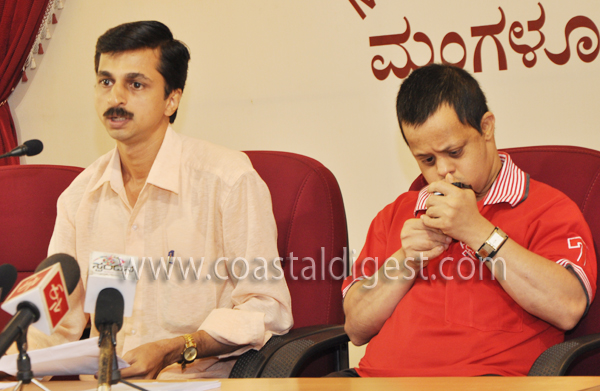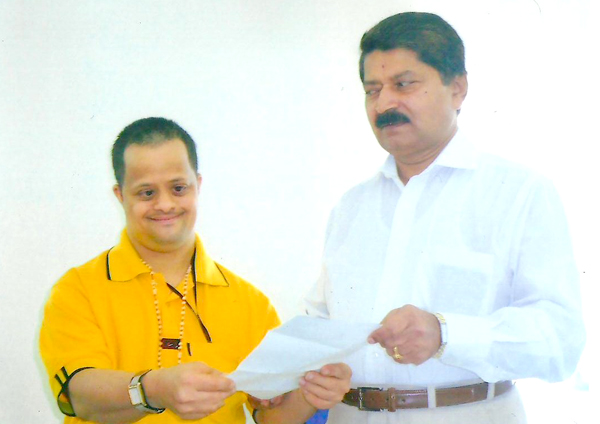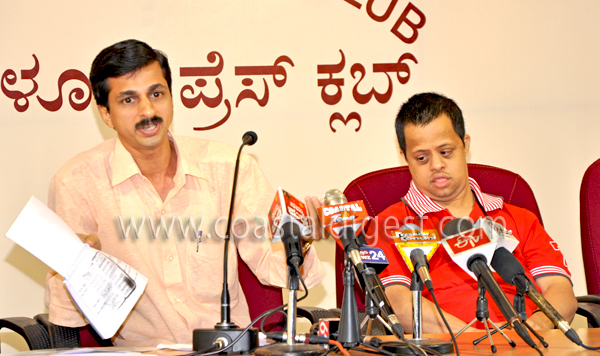
Mangalore, August 31: Suresh Naik from Puttur, a mentally retarded person, has made his way into record books for his unique memory power.
Addressing media persons at Press Club in Mangalore on Friday, Umesh Naik, his brother, said that Mr. Suresh's name has been included in the Limca Book of World Records following an event organized by the Limca Records authorities in Vijayvada, where Mr. Suresh recalled the names of 518 people with their telephone numbers noted in his diary, in 1 hour and 12 minutes. His name has also been included in the Asia Book of Records for possessing 'world's largest tongue' (measuring 10 cms from tip of the tongue to lips).
Limca has also recognized Mr. Suresh's four finger divisions by including another record of 'unique palm', Mr. Naik added.
Although aged 40, Mr. Suresh who suffers from Down Syndrome, possesses an IQ of mere 22. His social age according to doctors is 6.6 years. Mr. Suresh is an example that a person's weakness can be converted into his strength, Mr. Naik said.
Mr. Suresh actively participates in programmes of Puttur Sri Laxmivenkatarama Temple. He also works as a telephone operator at Puttur Shriram Shares.







Comments
Do you mind if I quote a few of your articles as long as I provide credit and sources back
to your site? My website is in the exact same area of interest
as yours and my users would really benefit from a lot of the information you provide here.
Please let me know if this alright with you.
Thank you!
Review my web-site - ??????? ????????: http://www.rakzmobile.com/
Add new comment